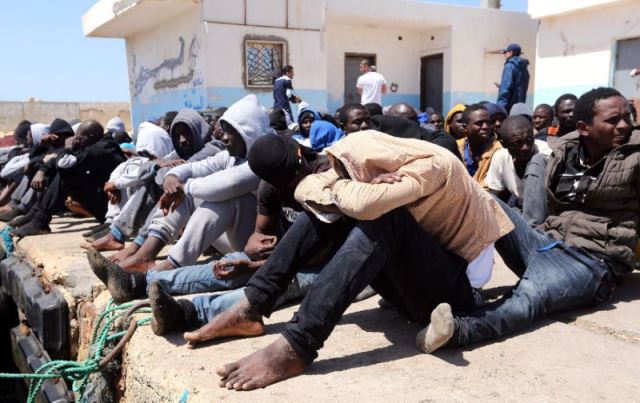
Under the plan, some 38,000 migrants who entered Israel illegally, mainly Eritreans and Sudanese, will have until the end of March to leave.
Each will receive a plane ticket and $3,500 (2,900 euros) to do so. After March, this amount will decrease and those who continue to refuse to go will face arrest.
Holot, an open facility in Israel's desert south that can host 1,200 migrants who are allowed to leave to work during the day, is also set to be closed.
When the plan was first announced in November, the United Nations refugee agency expressed concerns.
Netanyahu on Wednesday defended the plan when he spoke about it before a cabinet meeting.
"Every country must maintain its borders, and protecting the borders from illegal infiltration is both a right and a basic duty of a sovereign state," he said.
Number of international migrants jumps to 258 million people: UN
Israel tacitly recognises that the Sudanese and Eritreans cannot be returned to their dangerous homelands, so it has signed deals with Rwanda and Uganda, which agree to accept departing migrants on condition they consent to the arrangement, activists say.
Migrants started coming in large numbers across the porous border between Israel and Egypt's Sinai Peninsula in 2007, when nearly 5,000 entered, interior ministry figures show.
The government has since completed fencing the border and deploying electronic sensors. In the first six months of last year, no one made it across.
Turkey says EU funds not being actively used for needs of Syrian refugees
Over the years, those caught at the Egyptian frontier were detained at prisons in the Negev desert in southern Israel.
On release they were given bus tickets to Tel Aviv, arriving at the central bus station on the south side of the city.
Israeli residents of southern Tel Aviv have long complained of their presence and right-wing politicians have pledged to heed calls to force them out, often with harsh rhetoric.
During a visit in August, Netanyahu pledged to "return south Tel Aviv to the citizens of Israel". adding that the Africans were "not refugees but illegal infiltrators".
1732503274-0/Untitled-design-(43)1732503274-0-405x300.webp)
1732501636-0/Untitled-design-(42)1732501636-0-165x106.webp)

1732498967-0/Outer-Banks--(1)1732498967-0-165x106.webp)
1732086766-0/BeFunky-collage-(74)1732086766-0-165x106.webp)












COMMENTS (3)
Comments are moderated and generally will be posted if they are on-topic and not abusive.
For more information, please see our Comments FAQ